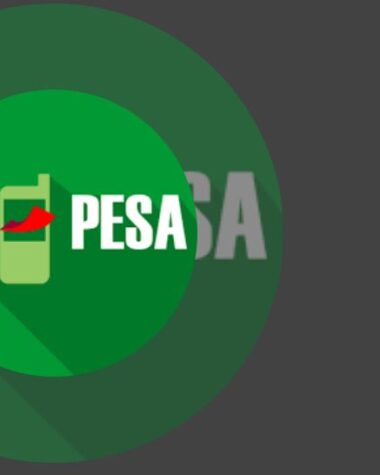It’s vital to keep our financial situation in mind and to make conscious decisions to save and budget money. This post will provide you with valuable strategies and tips on how to budget and save money. These insights are for everyone, whether you’re an experienced budgeter or you’re just beginning your journey. They will give you the tools to control your finances and reach your goals.
Eight Tips for Budgeting and Savings Money
Let’s get started
Understanding Your Expenses
It’s important to understand your spending in order to effectively plan and save. Begin by writing down all of your expenditures, big and small, over a specified period. You will have a better understanding of your finances. After you’ve compiled a list, you should analyze the patterns of your expenditures and find areas in which you could potentially save money and cut back on costs. The self-awareness you gain will help to create a budget tailored to your needs.
Create a budget
A budget is a crucial step in managing your finances. Set financial goals in line with your dreams. They can be either short-term goals, like saving up for a trip, or longer-term ones, such as building an investment fund. After you have set your goals, divide your income between needs, wants and savings. The 50/30/20 budgeting rule is a popular strategy. 50% of income should be allocated to needs (rents, utilities, grocery shopping), 30% for wants (entertainment and dining out), while 20% goes toward debt repayment and savings. This rule can be adjusted to suit your personal financial priorities and situation.
Cut Costs to Save Money
Budgeting and saving cash are both impacted by cutting costs. Find out what discretionary expenses can be cut or eliminated. For example, unnecessary subscriptions and frequent dining. Negotiate lower monthly rates on services such as cable and internet. There are also several ways to cut back on everyday costs like groceries and utilities. Compare prices, consider buying in bulk and using energy efficient appliances. To maximize savings, take advantage of discounts and coupons.
Building an Emergency Fund
A fund for emergencies is an important part of financial security. The fund acts as an emergency safety net in the event of unforeseen events, like medical emergencies or job losses. Calculate your monthly expenditures to determine the amount you want to save for an emergency fund. Set aside a portion of your monthly income and increase it gradually. Automate transfers into a savings account that is dedicated solely to an emergency fund. You won’t spend it and the fund will grow steadily over time.
To Pay Off Debt
Prioritizing debt repayment is important because it can affect your progress financially. Start by analyzing the financial impact of your debt. List your debts including amounts due and interest rates. Two popular debt repayment strategies are the debt snowball and debt avalanche. Debt snowball involves first paying down the smaller debts, while debt avalanche focuses first on the highest-interest debts. Select the method that best suits your financial and personal situation. Pay off your debts consistently and don’t accumulate new ones.
Increase Income
While cutting expenses is important, increasing income will accelerate the journey to financial independence. Consider generating additional income through a freelance job or side gig. You can monetize your hobbies or skills, such as graphic design or freelance writing. You can improve your long-term income by investing in skills development. New skills may open the door to new job possibilities or even allow you to launch your own company.
Automation of Savings and Payments
Automating your budget and savings is an effective tool. Create automatic monthly transfers from your checking to your saving account. So, you can save a part of your monthly income before spending it. Avoid late charges and penalties by automating your bill payment. You can schedule payments to recurring bills in advance so you don’t miss any due dates. Automating your processes will ensure your savings are growing consistently, and that you pay your bills on time.
Monitor and adjust your budget
It is important to monitor your budget on a regular basis. Compare your expenditures to the budget you have set. You can then identify areas in which you may be spending too much and where adjustments are needed. You should be flexible in your approach to budgeting and willing to make changes as necessary. Your financial circumstances may change. It is important that you adapt your budget to reflect these changes. Budgeting is an ongoing process that can yield substantial financial rewards.
What is a realistic Budget?
- Track your Income and Expenses : Start by understanding what you earn and spend. Keep track of all income sources, such as salaries, side jobs, and freelance work. Keep a detailed account of your expenditures. Add up all your expenses, including fixed costs like rent, utility payments and loans, but also variable ones like entertainment, groceries and transportation.
- Set Priorities for Your Financial Goals Determine your financial goals, and then set them in order of importance. Some of these goals include paying down debt, building a savings account for a home purchase, and creating an emergency fund. Clarifying your goals will allow you to allocate resources in a way that aligns your budget with your aspirations.
- Categorize Expenses. Group your expenditures into groups in order to better understand your habits. Housing, transportation, grocery shopping, entertainment, debt repayment, and healthcare are all common categories. You can use this categorization to identify where you are overspending or where you could cut back on costs.
- How to Differentiate Needs from Wants: Distinguish essential needs and non-essential wants. The needs include expenses such as housing, food and utilities. Wants include non-essential expenditures like entertainment subscriptions and luxury purchases. Spending discretionary money is a waste of resources. Prioritize your wants and your budget accordingly.
- Set Limits That Are Realistic: Determine realistic limits for your expenses based on the income you earn and your financial goals. Set realistic limits. Avoid setting too strict limits, which may prove difficult to follow. This could result in frustration and failure. Balance your priorities between maintaining a comfortable life and your finances.
- Use the 50/30/20 Budgeting Rule. This is an extremely popular budgeting rule. You should allocate 50% of your earnings to essentials such as groceries, rent and utilities. Reserving 30% of your income for non-essential wants such as entertainment and dining out. Last, put 20% aside for debt repayment and emergency funds. You can adjust these percentages to meet your financial needs and goals.
- Prepare for Unexpected Expenses Budget for expenses such as car repairs, insurance, and holiday costs that don’t occur each month. Save a monthly portion of your earnings in a separate account for these expenses. You will not be financially stressed when the expenses occur.
- Re-evaluate and adjust your Budget: Review your budget regularly to determine your progress. Make any necessary changes. Compare your actual expenditures with your budgeted amount and note any differences. Consider reallocating money from another category or finding ways of reducing expenses.
- Be flexible: A budget is not rigid rules, but a tool that can be adjusted to fit your needs. Be flexible with your budget. Your financial and life priorities can change. Your budget must be flexible to remain realistic and efficient.
- Technology and Budgeting Tools: Make the budgeting process easier by using technology. There are many mobile apps and platforms online that can help track your expenses, organize spending and monitor budget. These tools provide useful insights to help you manage your finances.
Budgeting is a great way to save money and budget effectively
Set Clear Financial Goals
Define your financial objectives. If you’re looking to pay off debt or save for a downpayment, plan for retirement or even just get rid of some credit card debt, then having goals in mind will help motivate and guide your saving and budgeting efforts.
Make a realistic budget
Create a budget reflecting your financial goals, income and expenses. You can track your expenses and income to get a better understanding of how your money is spent. Sort your expenditures and divide your income according to your categories. This will help you save money and pay off debt.
Keep track of your expenses and monitor them
Track and monitor all your expenditures to keep track of your budget. Record your transactions using mobile apps and spreadsheets. Examine your spending habits and find areas you could cut back on or adjust.
Differences between Needs and wants
Separate essentials from discretionary needs. Spend money on necessities like food, housing and utilities. Find ways to cut or eliminate your unnecessary expenses. You will have more money to save and achieve your financial goals.
Create an Emergency Fund
Create an emergency fund for unexpected financial crises or expenses. Save three to six month’s worth of expenses. Set aside a small portion of each monthly income and increase it over time.
Pay off Debt Strategically
To reduce interest and to improve your finances, prioritize debt repayment. Consider strategies such as the debt snowball (paying the smallest amount first) or debt avalanche (paying the highest-interest debts first). Consider making consistent payments, and negotiating interest rates with your creditors.
Automatic Savings and Bill Paying
Automate the payment of your bills and savings to avoid any late fees and ensure that you are always on time. Create automatic monthly transfers to and from your savings account. Set up automatic payments for your bills to avoid late fees and missed deadlines.
Budgets should be reviewed and adjusted regularly
Review your budget regularly to determine your progress, and adjust as necessary. Your financial and life priorities can change. It’s therefore important to adjust your budget. Be flexible, and open to re-allocating money or changing your financial goals as needed.
Consult a professional for advice
Consult a financial adviser or seek advice from those who are experts on budgeting and money saving. You can get personalized advice and develop an individual plan to budget and save money based on the specifics of your financial situation.
Practice Patience and Discipline
Discipline and patience are required to budget and save money. Even when you are faced with unexpected obstacles or temptations, stay committed to your goals. Avoid impulsive purchases and delay gratification. Remember the benefits of budgeting, saving and financial stability in the long term.
Final Words on Tips on Budgeting and Saving Money
Saving money and budgeting are essential to financial success. Understanding your costs, creating a plan, cutting expenses, building an Emergency Fund, paying down debt, increasing income, automating payments and savings, and tracking your budget will help you achieve financial stability. Start implementing the strategies today. Small steps can have a big impact on your finances. Budgeting and savings are powerful tools that can help you achieve financial freedom.








